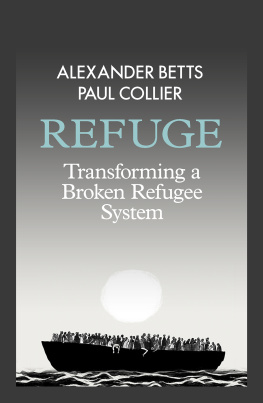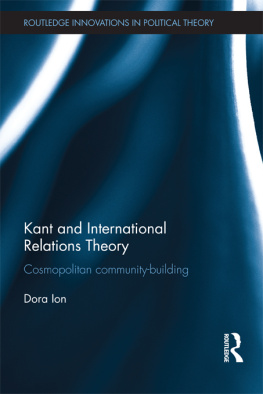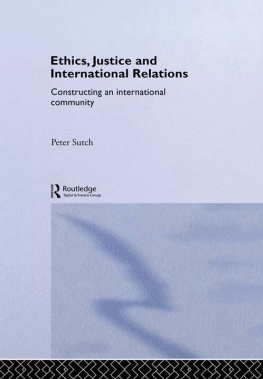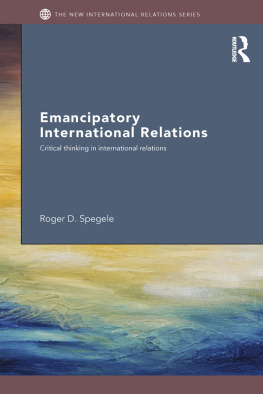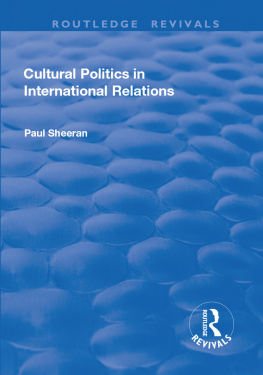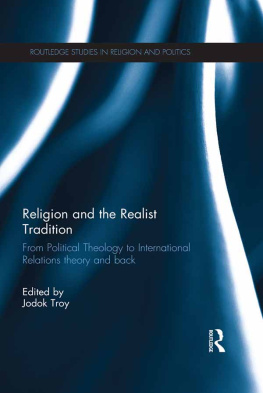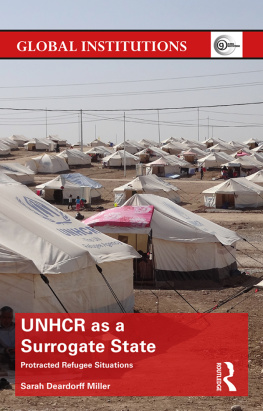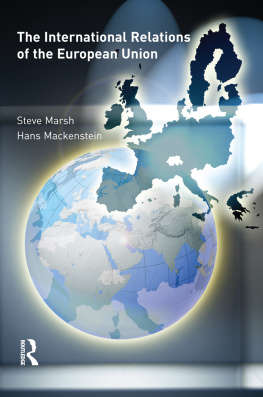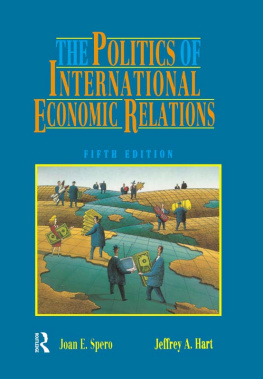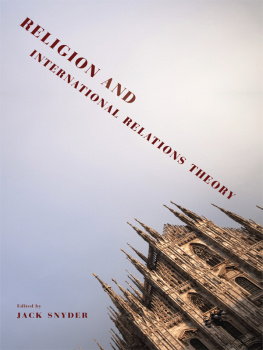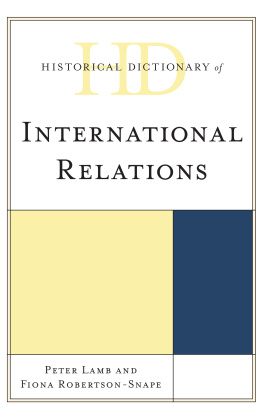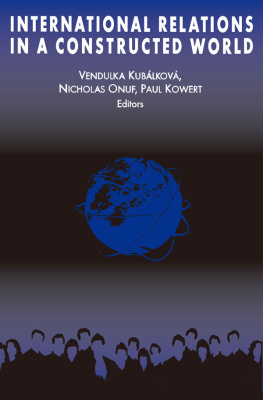REFUGEES IN INTERNATIONAL RELATIONS
Refugees in International Relations
Edited by
ALEXANDER BETTS AND GIL LOESCHER


Great Clarendon Street, Oxford ox2 6DP
Oxford University Press is a department of the University of Oxford.
It furthers the Universitys objective of excellence in research, scholarship,
and education by publishing worldwide in
Oxford New York
Auckland Cape Town Dar es Salaam Hong Kong Karachi
Kuala Lumpur Madrid Melbourne Mexico City Nairobi
New Delhi Shanghai Taipei Toronto
With offices in
Argentina Austria Brazil Chile Czech Republic France Greece
Guatemala Hungary Italy Japan Poland Portugal Singapore
South Korea Switzerland Thailand Turkey Ukraine Vietnam
Oxford is a registered trade mark of Oxford University Press
in the UK and in certain other countries
Published in the United States
by Oxford University Press Inc., New York
Alexander Betts and Gil Loescher 2011
The moral rights of the authors have been asserted
Database right Oxford University Press (maker)
First published 2011
All rights reserved. No part of this publication may be reproduced,
stored in a retrieval system, or transmitted, in any form or by any means,
without the prior permission in writing of Oxford University Press,
or as expressly permitted by law, or under terms agreed with the appropriate
reprographics rights organization. Enquiries concerning reproduction
outside the scope of the above should be sent to the Rights Department,
Oxford University Press, at the address above
You must not circulate this book in any other binding or cover
and you must impose the same condition on any acquirer
British Library Cataloguing in Publication Data
Data available
Library of Congress Cataloging in Publication
Data Data available
Typeset by SPI Publisher Services, Pondicherry, India
Printed in Great Britain
on acid-free paper by
MPG Books Group, Bodmin and Kings Lynn
ISBN: 9780199580743 (Hbk)
9780199595624 (Pbk)
1 3 5 7 9 10 8 6 4 2
To our students in Forced Migration Studies
and International Relations
Foreword by Hedley Bull
Hedley Bull, the pre-eminent British scholar of international relations during the 1970s and early 1980s, wrote and lectured widely on international relations. His interests spanned practically the entire field of international politics at that time: nuclear strategy, development issues, ethics, justice and international affairs, the United Nations and international institutions, and world society, order, and authority.
While we were preparing the manuscript for this book, Claudena Skran, a former student of Bulls, brought to our attention a previously unpublished paper of his entitled Population and the Present World Structure written some time in the early 1980s. She told us that during her time at Oxford, he showed an interest in the refugee issue in international relations and encouraged students to undertake research on the topic. For example, in 1983 he prepared a list of possible topics for graduate research students at Oxford. On that list was the refugee problem in world politics. It seems he had become interested in refugees because of their connection to development topics and because of the African refugee issues at that time.
Claudena also recounted visiting Bull at his home in north Oxford in 1985 just a few weeks before he died. He was quite ill then, but was still seeing students and giving advice. Among the things he discussed with her was the conflict in Biafra. Claudena recounts that Bull told her that the Ibos had paid a very high price for order in that civil war. While she could not remember the rest of the conversation exactly, the meaning that she took away from their meeting was that refugees were connected to broader issues relating to order and justice and that forced migration was worthy of study and attention by both graduate students and advanced scholars in international relations.
Bulls paper Population and the Present World Structure reflects his interest in development, injustice, and the inequality between the Global North and Global South.
The paper also discusses the significance of migration and refugee issues. In particular, Bull recognized the importance of strategic, political, and economic causes underlying most population movements. He lists as the primary causes: anti-colonial struggles, conflicts in newly independent states, ethnic cleansing, internal conflicts and foreign intervention, and human rights violations. Migration also occurs because of inequalities between the Global North and Global South with regard to economic conditions and opportunities, social well-being, and access to liberty and freedoms.
For those of us writing about refugees, migration, and international relations in the twenty-first century, Bulls analysis in this paper also remarkably foreshadows many pressing contemporary issues. He raises as concerns the mixing of refugee and migrant flows (todays so-called asylummigration nexus), increasing state and popular concerns over sovereignty and control of borders, the growing fears and restrictionist attitudes and policies of the industrialized states, the growth and influence of diaspora networks, the importance of global information networks, and the spread of long-distance transport. These are among the key issues of concern to scholars, governments, and international organizations today.
We reproduce below a section of Hedley Bulls paper entitled Population and Migration which we believe was written in the early 1980s, probably for presentation at a conference.
Alexander Betts and Gil Loescher
One way in which the pressure of population on the resources of poor countries may be relieved is through migration to places where resources are more plentiful. Some Third World governments seek to encourage migration of their surplus population to Western countries, or other areas of the Third World, such as the oil-producing states of the Middle East; some, like Mexico and Cuba, not merely demand entry into the United States for their surplus population, but speak as if entry were a moral right conferred by history or by present poverty. Such claims, moreover, do gain some recognition in those circles in the West in which there is sensitivity to global economic injustice.
From the point of view of poor sending countries, the benefits of this migration are clear enough. The migrants themselves escape from deprivation to a better standard of life, and, if they have gone voluntarily, show by their going at least that they themselves believe that they will benefit. Those that are left behind may benefit from remittances, from no longer having to provide sustenance for those that have departed, and from reduced burdens of welfare. The sending country as a whole will have lost actual or potential labour, and in the case of highly skilled migrants may suffer the effects of the brain-drain, but it may stand to gain from the export of unemployment, the acquisition of revenue and foreign exchange from remittances, and a safety-valve for the release of social tensions. The high growth rates following mass emigration from southern European countries in the postwar period and the advantages derived by South Asian countries from migration to the Gulf area in the 1970s provide illustrations of these benefits.
Emigration from Third World countries, which today has reached massive proportions, does not in itself necessarily contribute to the goal of a just geographical distribution of population in relation to available resources, nor imply any demand for it. The causes of emigration from Third World countries in the post-1945 era have been as much political as economic in nature: anti-colonial wars (as in Africa in the 1960s and 1970s), the oppression and sometimes expulsion of minorities by newly independent states dominated by particular ethnic groups (as of the Chinese in Indochina, Asians in east Africa, non-Amharic speaking peoples in Ethiopia), civil wars coinciding with foreign intervention (as in east Pakistan in 1971 or Afghanistan at present). The countries that have received the greater part of the migrants are not those of the West, nor indeed the oil-rich segment of the Third World, but other poor Third World countries (at present Sudan, Zaire, Somalia, Thailand, Pakistan, Jordan, Mexico). The mode of transport involved in much of this migration is by foot to a neighbouring state and is not a reflection of modern transport technology.
Next page

